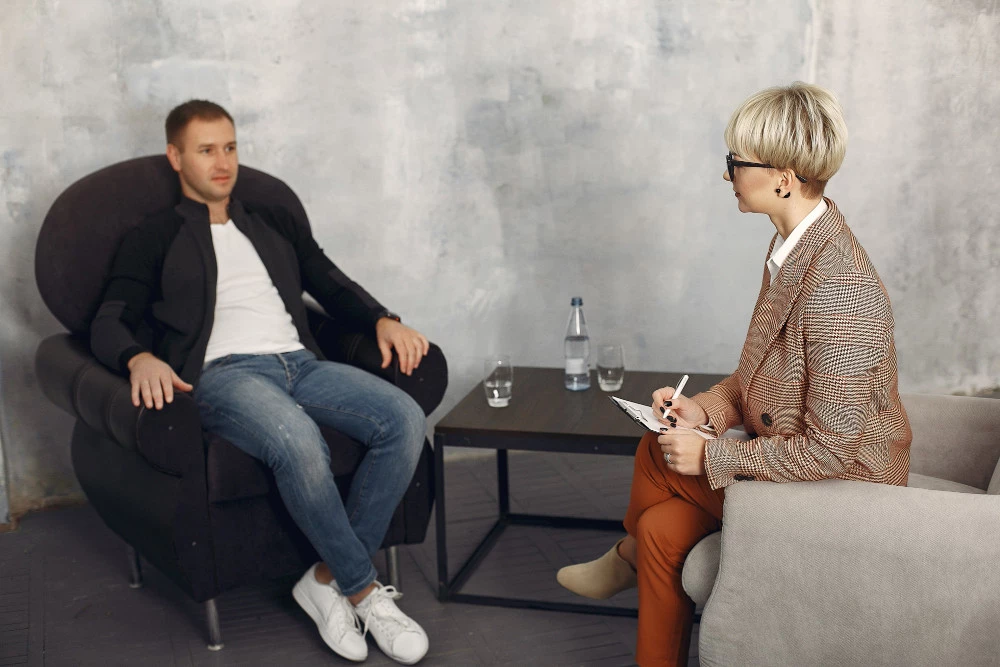Announcement
This article will serve as a guide to understanding individual therapy, what purpose it serves, what you can expect in your sessions, and what your overall healing journey will be. With this guide, you can better understand when individual therapy can help improve your mental well-being and quality of life.
Introduction
What is individual therapy? Individual therapy is a form of psychotherapy where you meet with a therapist on your own. Individual therapy plays a very important role in mental health treatment. With individual therapy, you have the opportunity to truly explore your childhood, upbringing, personal experiences, past trauma, and anything else unique to your life that might be hurting your mental health.
Individual therapy and psychiatry allow you to work with the same professional, build a working relationship with them, and undergo intensive individual therapy that helps you set and achieve goals for improving your mental health.

Therapeutic approaches and techniques
When you participate in individual therapy, you’ll have a set time and place where you go for your sessions. During these sessions, you’ll meet with your therapist or psychiatrist individually. Everything you say in these sessions remains confidential.
Types of Individual Therapy
There are several types of individual therapy, including:
- Cognitive behavioral therapy
- Interpersonal psychotherapy
- Dialectical behavioral therapy
- Psychodynamic psychotherapy
- Person-centered therapy
- Rational emotive therapy
Each of these types of individual therapy is designed to treat different mental health issues.
If you participate in individual therapy and psychiatry, you might undergo sessions to treat severe mental health disorders and receive medication to help you manage your symptoms.
By comparison, if you undergo a cognitive behavioral therapy program, your therapist won’t prescribe medication, but they can help you find strategies to replace negative automatic thoughts with positive ones.
What to Expect with an Individual Therapy Program
So what can you expect when you participate in individual therapy sessions? No matter which type of individual therapy you participate in, you’ll go through some of the same steps.
Initial assessment and goal-setting sessions
You’ll undergo an initial assessment during your first few meetings with your therapist. This will help your therapist determine what type of individual therapy program is best, how many sessions are recommended, and whether you should participate in complementary therapies.
You can expect:
- A greeting and some initial paperwork
- Some time spent gathering information about your needs and why you started individual therapy
- A discussion about your concerns and what you hope to get out of therapy
You’ll also work with your therapist to set goals. These goals are an important part of your treatment program. With goals, you’ll have regular steps to which you’ll progress as you move through your program. These goals can help you recognize the efficiency of your individual therapy and your progress toward improving your mental health and overall well-being.

Structure and format of individual therapy sessions
The average individual therapy session lasts for 1 hour. How often you meet is between you and your mental health professional.
You can expect:
- Easy conversations meant to build your relationship with your therapist
- An assessment of what you’ve done in previous sessions and what you want from the current session
- Goal setting
The therapist with whom you work will prepare you for the structure and format of your individual therapy sessions. If, for example, you are participating in cognitive behavioral therapy, you’ll typically have homework at the end of each session, which means the beginning of the following session will provide a brief opportunity to go over your homework and any questions or issues that may arise.
Collaborative problem-solving and exploring personal experiences
With intensive individual therapy, you’ll spend a lot of time working with your therapist, collaborating on issues that you want to solve and how you can best solve those problems. You’ll also take a lot of time to explore your personal experiences and determine where or how those experiences have contributed to your current well-being and mental health status.
Development of coping skills and self-awareness
As you move through the first several weeks or months of your individual therapy program, you’ll start to reach a point where, rather than exploring your past experiences and setting goals, you’ll start to develop your coping skills and self-awareness.
Coping skills will be highly individualized, which is why it’s beneficial to work with an individual therapist rather than a group therapist when you first start treatment because an individual therapist can work with you and you alone and provide coping skills that are curated to your needs.
Common coping skills taught in individual therapy in psychiatry include things like:
- Using your five senses to help ground yourself when you are anxious,
- Staying connected to others,
- Exercising,
- Employing positive self-talk,
- Acknowledging your emotions and being self-aware rather than hiding from them,
- Prioritizing self,
- Journaling,
- Talking about how you feel, what your experiences were like, and what emotions you are facing,
- Relaxation and stress management techniques

Homework assignments and practice outside of therapy sessions
As mentioned, a big part of many individual therapy programs includes homework. You’ll be given specific assignments and things on which your therapist wants you to practice outside of your sessions.
For example, you might be given homework that applies to self-awareness, such as journaling about how you felt throughout the day. Instead, you might be given homework assignments that help you apply your coping skills, such as positive self-talk, acknowledging your emotions, or utilizing relaxation techniques.
A key benefit to the longevity of most individual therapy programs is the fact that you get chances to practice things like coping skills or problem-solving in real-time and then discuss how effective certain strategies were or were not and how your homework provided real-life applications.
Summing Up
Individual therapy can be an incredibly effective tool for improving your mental health and overall well-being. With an individualized individual therapy program, you can create a strong therapeutic bond with your therapist, one built on trust. You’ll work with that same individual over the course of your individual therapy sessions, setting goals, applying coping strategies, and building your emotional health.